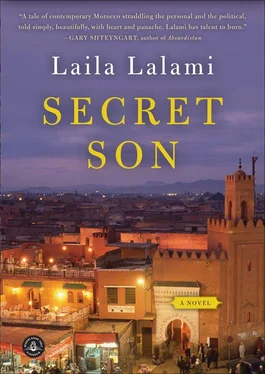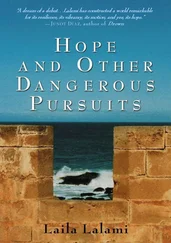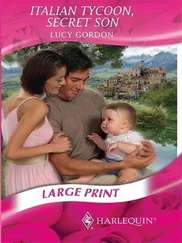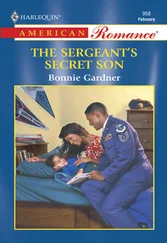“Let’s all just play together,” Amin said. “All of us against all of you.”
Maati shook his head. “There are six of us and only five of them. It wouldn’t be fair.”
“What’s the matter?” Eyebrows said. “You’re afraid to lose?”
“Lose?” Youssef said, chuckling. “Who do you think you are? Mustapha Hadji? You’re just a regular kid.”
“Don’t worry about the numbers, then. We can take you on.”
Maati twirled his soccer ball on his finger.
“So what are you boys going to do?” Eyebrows continued. “Play? Or stand around here whining, like a bunch of little girls?”
“Let’s play,” said Youssef. He was not nearly as good a player as Maati, but he felt a sudden, compelling urge to win. The two of them were on offense along with Amin, while Mounir and Rachid played defense. Simo was the goalkeeper. After only a few minutes of play, one of the intruders, a skinny boy who was playing barefoot, shot the ball into the right-hand corner of the goal posts. Simo dived for it but could not catch it. The intruders celebrated by giving one another high fives and big slaps on the back.
Maati immediately took the ball to resume the game, fighting heatedly with the other kids over every suspicious-looking move. Youssef goaded him; the idea that these boys would come play on this territory and score, even though they were outnumbered, was unbearable. Finally Maati managed to fool the intruders’ defense and cross the midfield. He was on his way to the goal perimeter when Eyebrows caught up with him and kicked him. Maati pushed him to the ground.
“Faggot,” Eyebrows said between his teeth. He shot to his feet and struck Maati in the face.
Maati seemed surprised by the attack; he was so rarely challenged on his own turf. He punched Eyebrows back. The fistfight was almost comical: the tall, muscular Maati against the skeletal boy from no one knew where. Youssef and Amin rushed in to restrain Maati before he could do any harm. “You’re an animal, you,” he said, wiping his bloody forehead. “You can’t play fair.”
Eyebrows sent spit shooting out of the side of his mouth. “You outnumber us, and you complain about playing fair? That’s a good one.”
Maati raised his fist again, but Youssef stopped him. “We’re done,” he said, dragging him away. “Let’s go, my friend.” Blood dripped from Maati’s forehead onto his white T-shirt. He touched the cut with his fingers, feeling for its depth. Someone suggested the Party’s infirmary.
THE INFIRMARY TURNED OUT to be a small room with a cot along one wall and a glass-paneled medicine cabinet against another. A bearded man in a white lab coat sat at a desk reading a book. Youssef had heard from Maati that the nurse was a Senegalese man who had been a classmate of Hatim’s in Egypt many years ago. They had moved back to Morocco together, and founded the Party with a group of friends. He stood up now.
“As-salaam, Moussa,” Maati said.
“Wa ‘alaykum as-salaam wa rahmatu llahi ta’ala wa barakatuh. What happened to you, my brother?” he asked.
“We were playing soccer and—”
“Sit, sit,” Moussa said softly, pointing to the cot. “Let me take a look at you.” He retrieved a first-aid kit from the cabinet. “In the name of God,” he whispered before starting. He disinfected the cut. “You’re going to need one or two stitches.”
“It’s just a cut,” Maati said.
“It’s too deep. Don’t move,” Moussa said. He sprayed an anesthetic and started to sew, working efficiently and in silence. Maati winced but didn’t complain. “There,” Moussa said. “It’s done, my brother.”
Hatim came in. “As-salamu ‘alaykum,” he said, a big smile on his face.
“Wa ‘alaykum as-salaam,” the three of them said mechanically.
“Wa rahmatu llahi ta’ala wa barakatuh,” Moussa added.
It annoyed Youssef that the Partisans always used the unabbreviated, properly Islamic greeting, never once using any of the colloquial ones. He picked up the soccer ball from the floor and looked to the door.
“How are you boys?” Hatim asked.
“Praise be to God,” Amin answered.
“What happened?”
“Just a little cut,” Maati said. He stood up and dusted himself off.
“Take it easy, my son,” Hatim said, smiling. “Have you kids started school?”
“Last month.”
“And what are you studying?” he asked, his eyes full of sudden interest.
“Law,” said Amin.
“English,” Youssef said.
Maati looked around the room as though he wanted to be somewhere else.
“How wonderful. How wonderful. We could certainly use talented young men like you around here.” He smiled again. “I was just coming here to show Brother Moussa this article in Casablanca Magazine .” He held out a glossy magazine folded in half. “This journalist — Farid Benaboud — he’ll print any trash he can find, so long as it serves his puppet masters.”
Youssef and the others stared at him uncomprehendingly.
“Oh, you don’t know Benaboud?” Hatim asked. “It’s just as well, really. He’s a disgrace. In this piece he praises one of the wines produced in Meknès. Can you believe the insolence? Qalt el-hya hadi! We are a Muslim country. We have no business having wineries here in the first place.” Hatim had not raised his voice, but when he stopped speaking the room fell quiet, his words having drowned out the sound of everything else. “Take a look,” he said, holding out the magazine.
Neither Amin nor Maati reached for it, so Youssef felt obliged to scan the article. He unfolded the magazine. On the opposite page was a color picture of a middle-aged man, under the headline NABIL AMRANI: “OUR BUSINESSES ARE TREATED UNFAIRLY.’ Youssef stared at the man in the picture, at his blue eyes and aquiline nose, his dark hair and wide forehead. The recognition was like a knife in the stomach — a kind of death. Yet instead of taking away life, it offered a new one, resurrected. Could this be his father? It was impossible. It was a mere coincidence, he told himself, a mere coincidence.
“You can keep the magazine, if you like,” Hatim said. “You should read Benaboud’s article in full to see what we’re up against.”
Youssef nodded, folded the magazine, and slipped it under his arm.
“Well, I won’t keep you,” Hatim said. “Good luck with the new school year.” He held the door open, and the three of them filed out.
ONCE IN THE CORRIDOR, Amin turned to Maati. “I could have done without the lecture,” he said angrily. “Next time, just go home and put Betadine on your cut, and save us all the talk.”
Maati touched the dressing on his forehead. “But Moussa did such a good job.”
They continued bickering, but all Youssef could think of was the photograph. He was afraid to open the magazine and draw attention to it. Taking deep breaths, he tried to quiet the beating of his heart in his chest. Amin and Maati stopped in the lobby to look at the list of programs pinned to the notice board. “Great. Another documentary on wild animals,” Amin said. “And a Qur’an study class. Fantastic.”
“What’s wrong with a Qur’an class?” Maati said.
“I’m leaving,” Youssef said. “Take care.”
He walked away, leaving Amin and Maati outside the Party’s headquarters. As soon as he turned the corner, he stopped and opened the magazine again. It was dusk, and in the diminishing light the picture did not look as frightening as it had in the infirmary. This was a blue-eyed man with the same name as his father. What did it mean? Nothing. The article was about a dispute between transportation companies and a government agency over the licensing of new bus lines. Nabil Amrani was quoted liberally throughout; it was clear that the journalist felt there was merit to his position. There was only one biographical detail Youssef could glean from the piece: that Amrani was a Fassi. But with a name like Amrani, of course, he would have to be from Fès. This did not mean much, either.
Читать дальше












